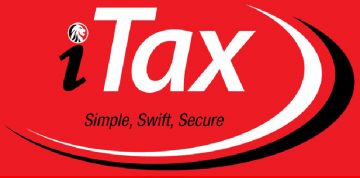Why Are You Getting a Facebook Password Reset Code Text When You Are Not Resetting Your Password?

Facebook continues to be the largest social network worldwide as it has around 2.4 billion monthly active users, and the number seems to be still growing. We already know that social media accounts often contain lots of personal and sensitive information, which is why cybercriminals target them. There are various methods that hackers can employ to gain access to your account and the data stored on it. One of them is tricking you into thinking that you need to reset your password. As a result, you could be getting Facebook password reset code texts. If you are receiving such messages even though you did not request a Facebook password reset, we invite you to read the rest of our article to learn why you might be getting such messages and how it is best to react to them.
Table of Contents
Why are you receiving Facebook password reset code texts?
Usually, users get such codes after they request their Facebook password to be reset. However, if you did not ask for a reset and yet you received the so-called password reset code text, it is possible that someone with malicious intentions could be trying to gain access to your profile. If cybercriminals know your login name, they might attempt to guess your password or may use malicious tools that could figure out your passcode for them.
In a case attackers have not only your login name but also your telephone number, they could send you fake Facebook password reset code texts. Such messages may even claim that someone is trying to hack your account and that you should change your password to protect it. Unfortunately, if you follow a link provided in the fake password reset text, you might end up on a fake Facebook password reset page. It ought to request to insert your current password, and if you do, your passcode might get recorded, which may allow cybercriminals to log into your account.
What to do if you receive a Facebook password reset code text unexpectedly?
As explained in the previous paragraph, you should assume that someone is trying to hack your account if you receive an unwanted Facebook password reset request. Knowing it might not even come from Facebook, we advise not to change your passcode or, better yet, not to interact with such messages at all. As long as hackers cannot figure out your Facebook password, your account should be safe. Therefore, your next step should be ensuring that your account is protected with a strong password and that you are taking advantage of extra security measures like Two-Factor Authentication.
How to create a strong password for your Facebook account?
The formula for a strong password is always changing. For example, at the moment, a secure passcode is a combination of 10-12 characters that include both lower-case and upper-case letters, symbols, and numbers. Also, a secure password is a combination that has never been used for any other account. If you use the same passcodes for multiple accounts, keep in mind that it only takes one of the passwords to be breached, and all of the accounts sharing it could become compromised.
Having a different and a strong password for each of your accounts could seem like an impossible task, but there is an easy solution. An application like a dedicated password manager can both generate secure combinations and memorize them for you. Meaning, you can set up complex passwords for all of your accounts without having to worry that you might forget them. If you want to try such a tool, we recommend our Cyclonis Password Manager. Not only it is free, but it also works on Windows, Android, iOS, and Mac devices. Plus, you can choose to create your encrypted passwords’ vault in preferred cloud storage, which would allow you to sync your login credentials across different devices. To learn more about Cyclonis, you should continue reading here.
What other safety precautions you could take to secure your Facebook profile?
Whether you suspect someone is trying to log into your Facebook account or you want to employ all safety precautions available, we recommend using the Login Notifications feature. This feature sends alerts to your mobile phone when someone is trying to log into your account from an unknown device or browser.
Facebook ought to gather information like the name of the unrecognized device, its location, and when the suspicious login attempt was made. All of this information should be presented to you, and based on it, you can decide whether it was you trying to log into your account, for example, from a friend’s computer, or if it might have been a hacker. Such alerts may advise changing your password, but they should not be confused with the Facebook password reset code texts as they only suggest replacing your passcode due to a particular suspicious activity.
Another thing we recommend is choosing trusted Facebook friends that could help you in case you cannot access your account or get locked out of your profile. If it happens, you will be able to request recovery codes from your chosen friends. These codes should provide special links that you could use to regain access to your account. If you want to learn more about this feature, you should read our previous blog post that explains how to select trusted contacts and how to recover your account with their help in detail.
To conclude, unsolicited Facebook password reset requests should be ignored. However, if you receive such messages, you should understand that someone could be after your Facebook account and that it might be the time to setup up safety features you have not used before. Also, you may want to change your passcode if it is old and no longer meets the current requirements of a strong password. Just make sure that you access the Facebook password change options on your own and do not click on any questionable links.









If we get a text with FB code followed by H29q+fsn4sr do we ignore text ? Does that mean our phone is already hacked what do we do?
Akun terkena heck
I keep getting messages on my mobile phone saying..."----- is your facebook code
My son says to ignore these messages, but why am I constantly getting them, is this truly from facebook, and I don't remember even asking for a confirmation code. please help, thank you
I do not remember my facebook password and do not have facebook password on my mobile number please help me as i can run my account